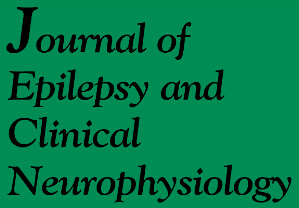INTRODUCTION: This review article is based on critical analysis of the literature concerning the surgical treatment of epilepsy in childhood. OBJECTIVE: To review and update knowledge about epilpsy surgery in childhood. RESULTS: Epilepsy surgery is used successfully to treat medically resistant seizures in children. Surgical therapy aims to reduce the occurrence or strength of incapacitating seizures, preferably to make the patient seizure-free, without unacceptable sequelae. If drug resistance is established the patient should start the investigation for localization of the seizure-producing area with combined vídeo-EEG recording during seizures; also a neuropsychological investigation, functional and anatomic imaging studies should be carried out Regarding the time of surgery, we do know that: (1) younger patients have a better psychosocial prognosis after surgery than do older patients; (2) the high incidence of unsuspected tumors in refractory partial epilepsy of childhood favors early intervention; (3) a long latency between the onset of epilepsy and surgery may predispose to poorer postoperative seizure control; and (4) developmental plasticity may offer reduced risk for postoperative neurological deficits. The most important benefit that we are looking for is the seizure free outcome. Also, a global outcome, including parental satisfaction, developmental and social outcome, as well as activities of daily living (ADL), schooling, and behavioral changes should be considered. Pediatric epilepsy surgical series show that 60-100% of the patients have a good seizure outcome. Temporal epilepsy patients have higher free seizure rates than the extratemporal group. CONCLUSIONS: Surgery for epilepsy has now become a realistic therapeutic option for selected children and the field is likely to increase in the near future. It is now realized that procrastination in the hope that new antiepileptic drugs or new combinations of drugs will become efficacious, is not justified for some forms of epilepsy that can often be recognized from onset or after a relatively short course. Surgical therapy should not be considered unless there is a reasonably good chance of improving the patient's quality of life.
refractory epilepsy; epilepsy surgery; surgical prognosis






